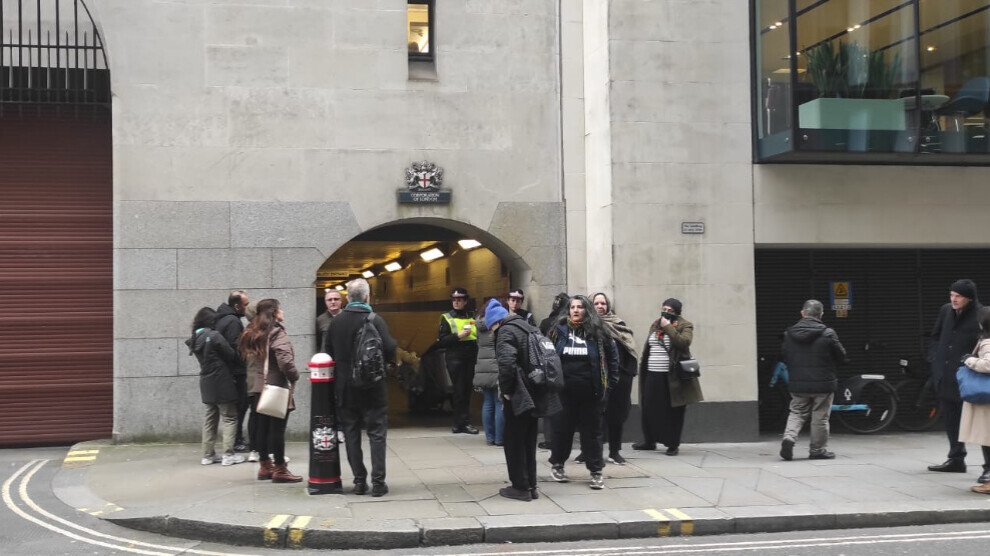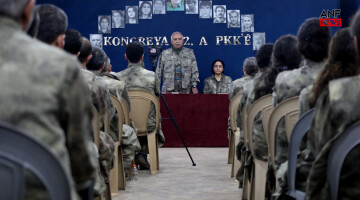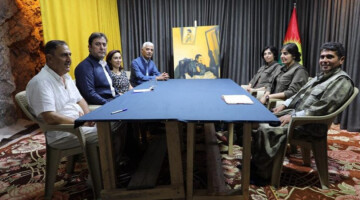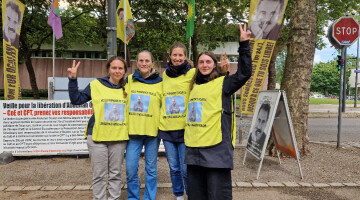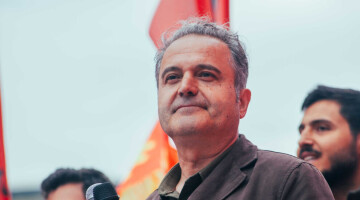The first hearing of the case against 6 Kurds, who were detained in a simultaneous operation carried out by the British police on 27 November against the Kurdish Community Centre (KCC) and private homes and remained in custody for 14 days, was held at Old Balley Criminal Court on Friday.
Co-chair of the Kurdish People's Assembly in Britain Türkan Budak, KCC activist Ercan Akbal, politician Ali Poyraz, activists Agit K., B.K. and Mazlum S. were present at the first hearing of the trial, which is evaluated as a ‘criminalisation operation’ against Kurds.
Activists of the Kurdish People's Assembly, representatives of the Democratic Forces Union (DGB) of Britain and Kurdish friends also attended the court hearing.
The first hearing of the activists before the judge took place as a preliminary preparation. The indictment against 6 activists was read during the hearing, which started with identification. Then the dates of the hearings were set.
The court decided that the main trial will start 13 months later, on 5 January 2026, and will last for 12 weeks. The court will ask for all evidence to be presented on this date. Then, the indictment is planned to be completed and submitted to the court by 18 April 2025. Defence lawyers will present their defence against the indictment until 30 May 2025. The whole process will be completed on 25 June with the Prosecution's response to the defence statements. If the Prosecution does not give up its allegations during this process, the trial, which will last a total of 12 weeks, will start on 5 January 2026.
The judge ruled that the conditional release of the Kurdish activists would continue, stating that ‘the defendants should apply for a change in their individual conditions if they provide evidence of their employment status.
As the hearing was adjourned until 5 January 2026, Lawyer Ali Has told ANF that the prosecution is clearly politically motivated: “It is clear that the defendants have been specifically targeted to disrupt their legitimate, rights-based activism both in the UK and internationally, particularly in relation to the Kurdish question. Such actions by the authorities appear designed to undermine the momentum of their political demands and to stifle dissenting voices in defence of Kurdish rights and autonomy.”
Pointing out that the so-called evidence presented during the interrogation phase at the police station is highly questionable, Lawyer Has said: “Rather than pointing to any illegal activity, it mainly consists of documents and references to the defendants’ legal campaigning and advocacy work on the Kurdish issue. This raises serious concerns about the abuse of legal mechanisms to charge individuals for exercising their fundamental rights.”
Noting that the prosecutor's office filed a lawsuit on such flimsy grounds, alleging ‘membership in a banned organisation’, lawyer Has added the following: “The so-called evidence essentially relates to activities protected under international human rights law, including freedom of assembly, thought, expression and protest. Citing these protected activities as evidence of criminal behaviour not only undermines the rule of law, but also poses a serious threat to democratic freedoms. This case provides a disturbing example of how legitimate political expression and activism can be weaponised by the authorities to suppress dissent and silence advocacy. The wider implications of such prosecutions should not be underestimated, as they jeopardise fundamental freedoms and erode confidence in the justice system. This case is part of a worrying trend.”

